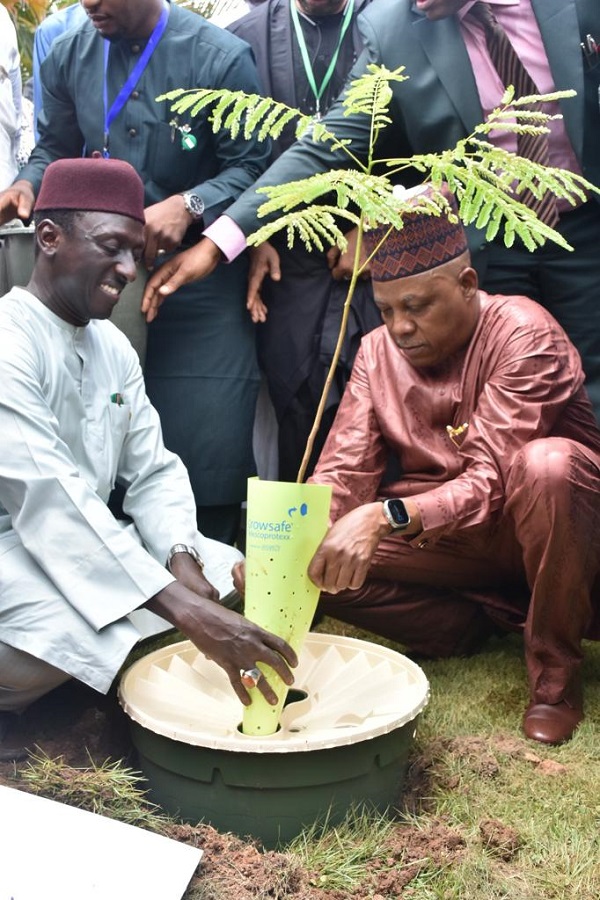
The vice president of Nigeria, Alhaji Kashim Shettima has reiterated the Federal Government’s commitment to ensuring food security and minimising climate-induced migration. Shettima made this declaration during the inauguration of the Great Green Wall Day initiative held recently in the Federal Capital Territory, Abuja.
Speaking on behalf of the vice president, the permanent secretary of the Federal Ministry of Environment, Alhaji Ibrahim Idris explained that one of the key manifestos of the current administration is to ensure that all hands are on deck to build a nation thriving under food security. The official launch of the initiative further emphasises this commitment.
In light of the recent climate-related challenges affecting certain areas in the country, Idris emphasised the need for increased mobilisation and sensitisation campaigns on ecological challenges such as drought, desertification, land degradation and climate change. To achieve this, aggressive afforestation and reforestation activities are deemed desirable at national and sub-national levels.
On his part, the director-general of the National Agency for the Great Green Wall (NAGGW), Dr. Yusuf Bukar confirmed that the initiative has already been implemented across 22 African countries and has uplifted thousands of communities across the continent. It fosters international partnerships between the African Union and the Pan African Agency of the Great Green Wall (PAGGW).
“The major objectives of ‘transforming Nigerian drylands’ by the agency are through afforestation, reforestation and the provision of alternative sources of cooking and energy use,” Bukar stated. Since 2015, the agency has made significant progress in adapting and mitigating the impact of emerging climate change risks in the frontline states of Borno, Yobe, Jigawa, Kano, Katsina, Zamfara, Sokoto, Kebbi, Bauchi, Gombe and Adamawa. It has achieved this through sequestering carbon dioxide (CO2) in shelterbelt plantations, woodlot plantations, orchard plantations, Gum Arabic (acacia) plantations, indigenous tree plantations, social forestry, farm forestry, institutional planting and large-scale forest land restoration. The agency has also directly intervened by providing empowerment and support to women and vulnerable individuals living within and near its GGW corridor.
As part of the commemoration of the Great Green Wall Day, the agency demonstrated the use of a Dutch invention known as the ‘Groasis Waterboxx’. This innovation ensures a 90 per cent survival rate for plant seedlings. Functioning as a plant incubator, the waterboxx shelters both the newly planted seedling and the ground around it from the heat of the sun, providing water for the plant. The lid collects water from rain and nighttime condensation, storing it in the bucket.
The National Agency for the Great Green Wall (NAGGW), established by an Act of Parliament in 2015, is principally focused on pursuing the laudable vision of the African Union and its Heads of State and Government when they adopted and launched the Great Green Wall for the Sahara and Sahel Initiative (GGWSSI) in 2007. The implementation of the initiative in Nigeria has so far witnessed improvement in the livelihoods of affected communities vulnerable to the impact of emerging climate change risks in the frontline states of Borno, Yobe, Jigawa, Kano, Katsina, Zamfara, Sokoto, Kebbi, Bauchi, Gombe and Adamawa. It has achieved this through the reduction of glaring poverty and ecosystem restoration, among other positive outcomes.

